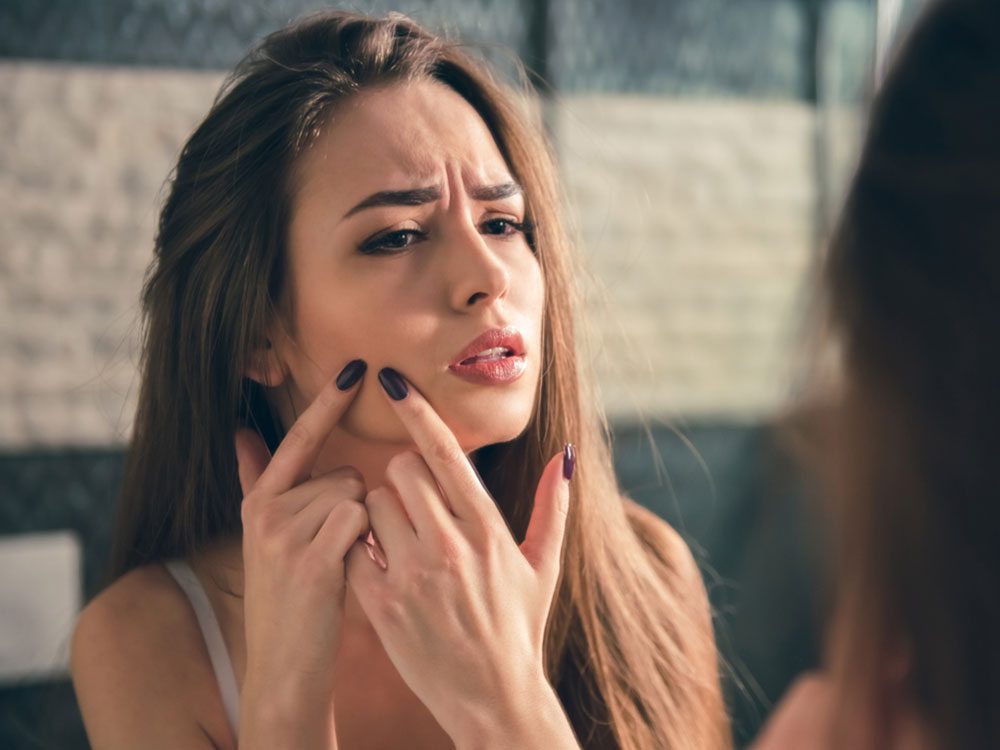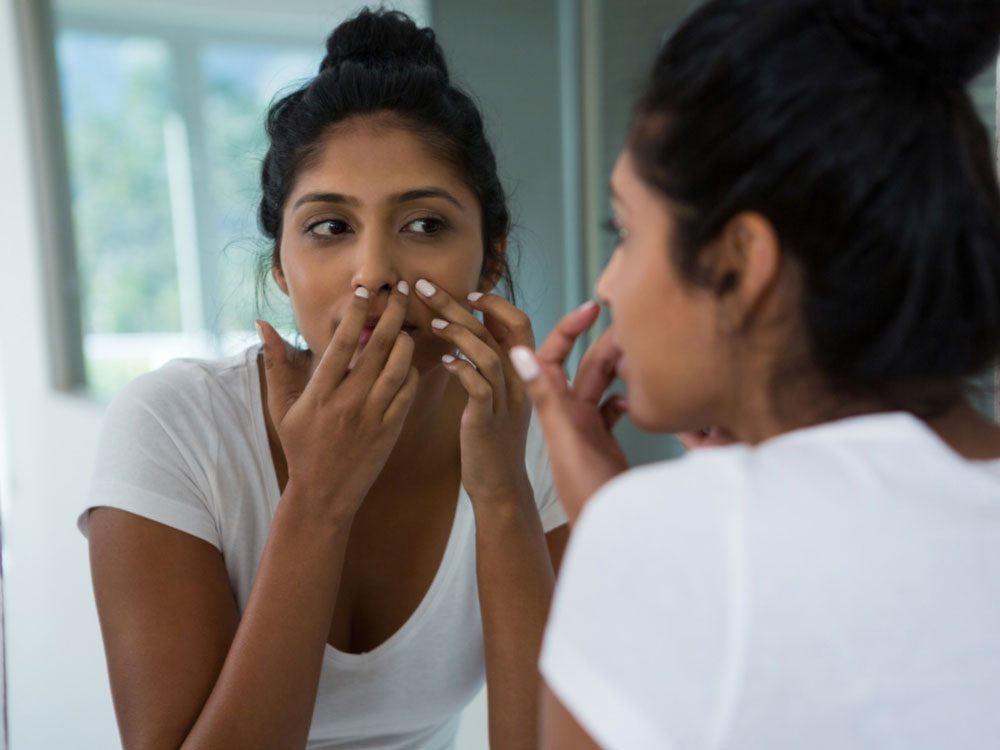
Why Adult Acne is On the Rise
The battle with adult acne isn’t necessarily over just because you’ve exited your teen years. While adolescents are famously the most affected age group, some people deal with acne for decades. It’s even possible to face the condition—the plugging of pores with oil, dead skin and bacteria—for the first time as an adult. (Here are five everyday things that treat acne.)
Adult acne is often caused by multiple factors working in tandem. For women, these can include hormone fluctuations related to menstrual periods, pregnancy or going through menopause. For both sexes, genetic predisposition plays a role: two thirds of adult acne sufferers have at least one close biological relative with the same problem.
Certain hair or skin products can clog the pores, so if you’re prone, look for labels such as “non-comedogenic” or “non-acnegenic.” Despite popular claims, the link between diet and acne isn’t well established. There are plenty of reasons to eat well, but avoiding pimples isn’t proven to be one of them. However, outbreaks can be triggered by certain drugs (e.g., corticosteroids, lithium) or by stress-related inflammation.
“There’s more acne among adults than there used to be,” says Dr. Françoise Poot, a member of the European Academy of Dermatology and Venereology. “We aren’t certain why, but we attribute the increase mainly to more stress and fatigue.”
Check out What Acne on Every Part of Your Body is Trying to Tell You.

How to Get Rid of Adult Acne
Compared to teen acne, the adult form tends to be milder yet more stubborn, especially if previous bouts of acne have left the skin’s microbes more resistant to treatment. Dermatologists might give sufferers prescriptions containing benzoyl peroxide (an antiseptic and anti-inflammatory agent), retinoids (vitamin A derivatives that help prevent pore plugging) or antibiotics to eradicate excess bacteria.
Many common acne creams and pills initially cause dryness, flaking, redness or flare-ups, and it can take up to eight weeks to see any improvement. Some patients stop treatment before it has the chance to start working, so make sure you understand how to use your prescription and what to expect from it.
While you’re waiting, don’t pick or scrub aggressively at your acne—it could cause scarring. Instead, wash it gently, no more than twice per day. If first-line treatments don’t work, your doctor can help you explore other options. For instance, oral contraceptives (suitable for women only) can be used to dial back the hormones that are causing the skin to produce excessive oil. Adult acne requires patience, but with professional help, virtually every case can be controlled.
Try these 6 Homemade Face Mask Recipes for Dry, Oily and Combination Skin.